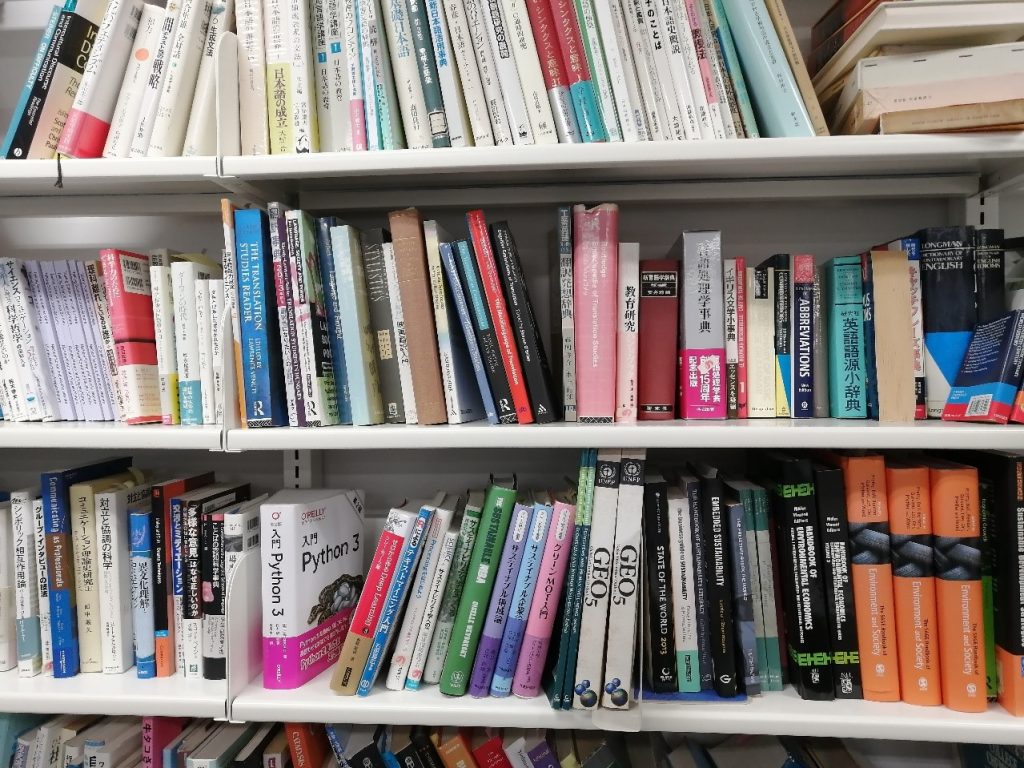It seems that many researchers experience the moment that they finally meet an extremely important book for their research. But it often happens unintentionally and unexpectedly. To experience that, you must be prepared enough to realize that a book is the book you need right now.

Fortunately, the exact moment happened to me. I was stuck with my research, wandering around Tokyo Tech’s library to find a book on the relation between surrealism and erotic representation of technology. Suddenly, I realized there was a book about English literature, and I opened it without any deep thoughts. The exact page showed me a piece of information highly related to my research. It was a theory about non-sense literature and its relations with surrealism, representation of little girls, and description of science and technology. The content happened to be quite similar to another classic theory about the representation of technology and eroticism that I had already known. Surprisingly, the two theories were published in the same year, but in different countries: France and Japan. Both authors did not quote each other’s works, and I had not seen any previous research that had picked up these two theories at the same time. However, if you compare these two theories, you can see how you can develop the classic theory utilizing the other theory I found unintentionally. It was such a lovely and lucky encounter with a book I’ve ever experienced.
A similar thing has been written by Umberto Eco, one of the best researchers of semiotics. When he was writing his paper, he hardly found the information he needed to finish it. When he entered a used book store in Paris, he unintentionally bought an old book written by an unknown priest in the 19th century, and he suddenly found the key idea for his research in the book (Eco, 1977/2006, p.170-1). Suddenly, just one book, which had been written by an infamous author about 100 years ago, gave him an amazing inspiration and enabled him to finish his research.
I sometimes feel that a book finds us, and it gives us surprisingly amazing
inspiration. I guess this happens to any researchers at least once in their life.
Japanese novelist and comedian Naoki Matayoshi said at his radio show that when he visited a bookstore at the right time with the right physical and mental condition, he knew which books he had to read. The books slightly shined to his eyes, and they never deceived him. He always found important information that he needed in the books.
The moment suddenly comes to you, but you need to be well prepared for it. To know that a book is actually the book that gives you what you need, you have to be aware of what kind of information is necessary for you at the right moment and always be sensitive to any clue around you.
The moment might happen to you, maybe tomorrow or years later.
References
Eco, U. (2006). Ronbunsahou [How to write a thesis] (I. Taniguchi, Trans.). Jiritsushobo. (Original work published 1977).
